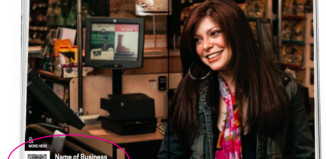In one of the most compelling scenes of The Hours, based on Michael Cunningham’s Pulitzer Prize–winning novel, Virginia Woolf (played by Nicole Kidman), restless and feeling imprisoned by her rural surroundings, passionately pleads with her husband to allow her to relocate to London–where she can feel the “violent jolt” of the British capital. She must ultimately forgive him for the ways in which he violated her trust. In all of our relationships, forgiveness is a process.
Forgiveness can be an extremely difficult and painful process. It starts with an injury, a wounding. Someone says or does something, intentional or not, and hurts someone else. The one injured feels angry and hurt and ashamed. The clinical literature on forgiveness often refers to the wounded per- son as a “victim.” Maybe that is one reason why so many of us avoid it. Who wants to view himself as a victim? After all, victims are helpless and powerless.
Perhaps for this reason alone, when someone hurts us, we attempt to empower ourselves by dip- ping into the well of anger. Anger lets us reassert ourselves. It lets us and others know that a bound- ary has been betrayed. And anger is also protective. Have you ever tried to get close to a really angry person? Good luck! Intense anger screams keep out!
Some people allow their anger to dissolve into a desire for revenge, to hurt the one who hurt them. Their guiding principle is “don’t get mad, get even.” Revenge may be pursued to balance the equation. As a good friend and therapist colleague of mine says, “Hurt people hurt people.” Revenge is really an attempt (albeit a really screwed-up one) at estab- lishing empathy. Revenge says, “I want you to feel what I feel so you will not ever do this to me again.”
The truth is you cannot have close relationships without some amount of anger. It is the natural by-product of conflict, and if there is any life in a re- lationship, there will certainly be conflict. So, an- ger is not a bad thing at all, really. It is healthy and normal. It is what you do with anger that counts. Do you let it fester and consume you? Do you give anger the power to hijack your thinking process? Or maybe you try to ignore it, hoping it will just evaporate all on its own? Anger is not like wine–it does not age well. If left unchecked, it can sour into chronic resentment.
Where does forgiveness fit into all this? It helps cool the lingering anger and heal the wound. Dr. Loren A. Olsen, a psychiatrist and author of Finally Out: Letting Go of Living Straight, charac- terizes forgiveness as “a psychological antidote to anger.” According to Olsen, the healing and forgiving process is comprised of two parts: letting go of the anger and moving towards reconciliation.
Forgiveness does not mean forgetting. It does not mean that the one who hurt you is off the hook and allowed to engage in the same behavior. Sometimes reconciliation is more about making peace with yourself and letting go of the relationship that was so unhealthy. Forgiveness is a turning point. Once a genuine apology has been offered and genuinely accepted, both of which can take time, the relationship then has the possibility of being stronger than before.
For some of us, saying “I’m sorry” is paired with feelings of guilt or shame. Apologizing forces us to look at our own shortcomings and own the fact that we have it in us to hurt someone we care about. If anger is a closed fist, forgiveness is an open (and vul- nerable) hand. You can certainly choose to keep your fists clinched and yourself guarded. But as Anne Lamott writes in her colorful book, Traveling Mercies: Some Thoughts on Faith, “… not forgiving is like drink- ing rat poison and then waiting for the rat to die.”
Letting go opens up a space for something better to emerge. Through forgiveness we exhale the heaviness of the anger and inhale the lightness of the new. Sometimes shallow breaths through a clinched fist are all we can manage for the mo- ment. It does not matter–just keep breathing.


































